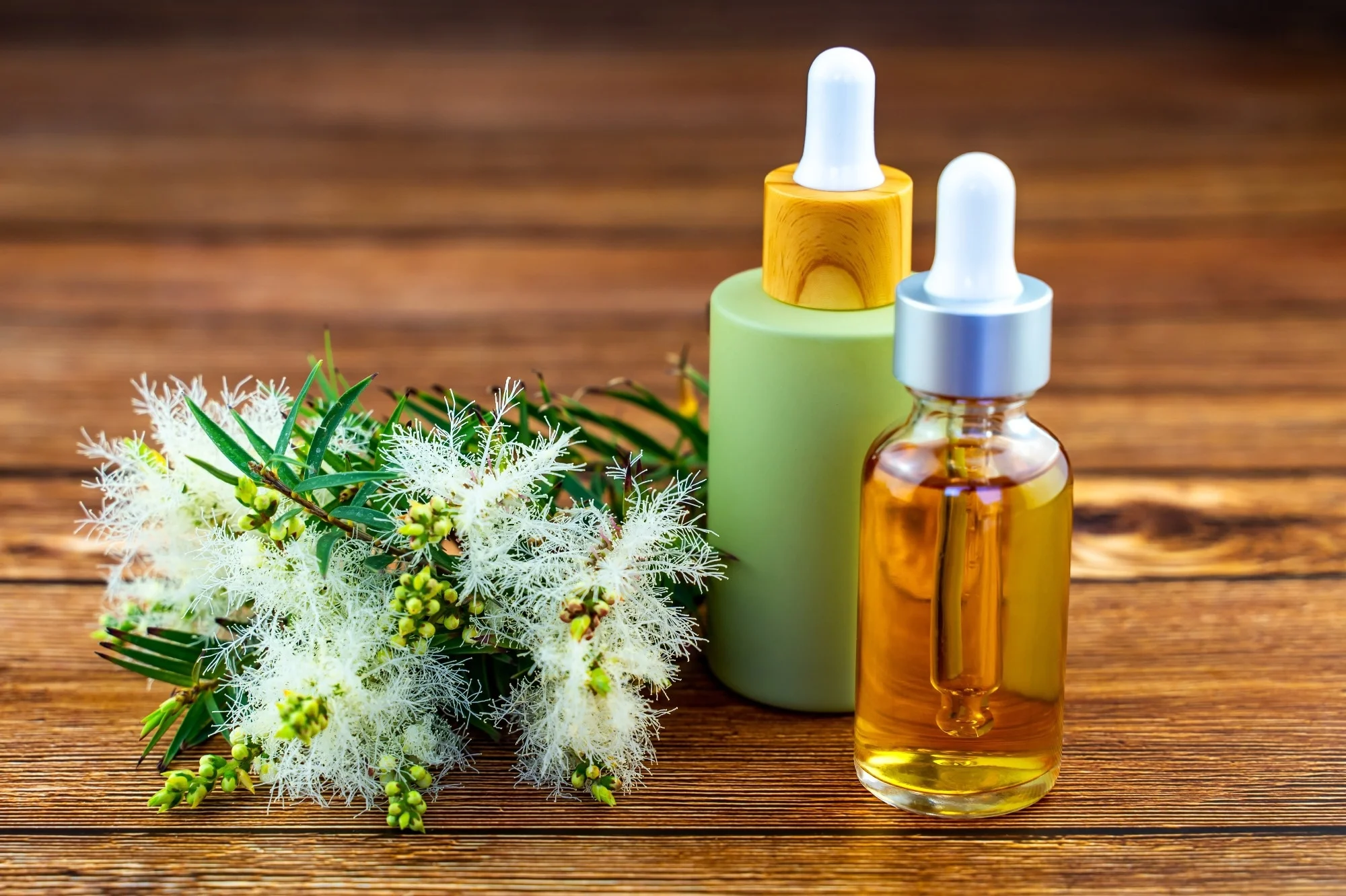In the realm of herbal remedies, few substances hold as much promise and versatility as tea tree oil. Extracted from the leaves of the Melaleuca alternifolia tree native to Australia, this potent oil has been revered for centuries for its myriad health benefits. From skincare to haircare, and even immune support, tea tree oil stands as a natural powerhouse in promoting wellness. Let’s delve deeper into the medicinal marvels and practical applications of this herbal elixir.
Understanding Tea Tree Oil:
Tea tree oil, also known as melaleuca oil, boasts potent antimicrobial, anti-inflammatory, and antiseptic properties, making it a popular choice in natural medicine. Its main active ingredient, terpinen-4-ol, is responsible for many of its therapeutic effects. With a fresh, medicinal aroma, tea tree oil is a staple in aromatherapy and holistic health practices.
Health Benefits of Tea Tree Oil:
- Acne Treatment: Tea tree oil’s antibacterial properties make it a go-to remedy for acne-prone skin. It helps to unclog pores, reduce inflammation, and combat acne-causing bacteria, resulting in clearer, healthier skin.
- Skin Infections: From athlete’s foot to nail fungus, tea tree oil effectively tackles various skin infections. Its antifungal properties help eradicate fungi responsible for these common ailments, promoting speedy recovery.
- Scalp Health: Tea tree oil’s soothing properties make it an excellent remedy for dandruff and dry, itchy scalp conditions. When added to shampoo or diluted with a carrier oil, it can help alleviate scalp irritation and promote healthier hair growth.
- Respiratory Relief: Inhalation of tea tree oil vapor can provide relief from congestion and respiratory issues. Its expectorant properties help loosen phlegm and ease breathing, making it a valuable ally during cold and flu season.
- Wound Healing: Tea tree oil’s antiseptic nature accelerates wound healing by preventing infection and promoting tissue regeneration. It can be applied topically to minor cuts, scrapes, and insect bites to aid in the healing process.
How to Use Tea Tree Oil:
- Topical Application: For skin conditions like acne, dilute tea tree oil with a carrier oil such as coconut or jojoba oil before applying to the affected area. For scalp and hair care, mix a few drops of tea tree oil into your shampoo or conditioner.
- Inhalation: Add a few drops of tea tree oil to hot water and inhale the steam to alleviate respiratory congestion. Alternatively, use a diffuser to disperse the oil throughout the air for a calming and cleansing effect.
- Cleaning: Harness the antimicrobial power of tea tree oil by adding it to homemade cleaning solutions. Mix it with water and vinegar to create a natural disinfectant spray for countertops, floors, and surfaces.

When to Use Tea Tree Oil:
Tea tree oil can be used as a preventative measure or as a remedy when health issues arise. Incorporate it into your skincare and haircare routine to maintain healthy skin and scalp, or use it as needed to address specific concerns such as acne breakouts or respiratory congestion.
Precautions:
While generally safe for topical use when properly diluted, tea tree oil can cause skin irritation in some individuals, especially those with sensitive skin. It should not be ingested or applied directly to the skin in its undiluted form. Pregnant or nursing women should consult with a healthcare professional before using tea tree oil.
Conclusion:
Tea tree oil stands as a versatile and effective herbal remedy with numerous health benefits. Whether you’re seeking clearer skin, relief from respiratory issues, or a natural alternative for household cleaning, this botanical powerhouse has you covered. By understanding how to harness its medicinal properties safely and effectively, you can unlock the full potential of tea tree oil in promoting overall wellness.


